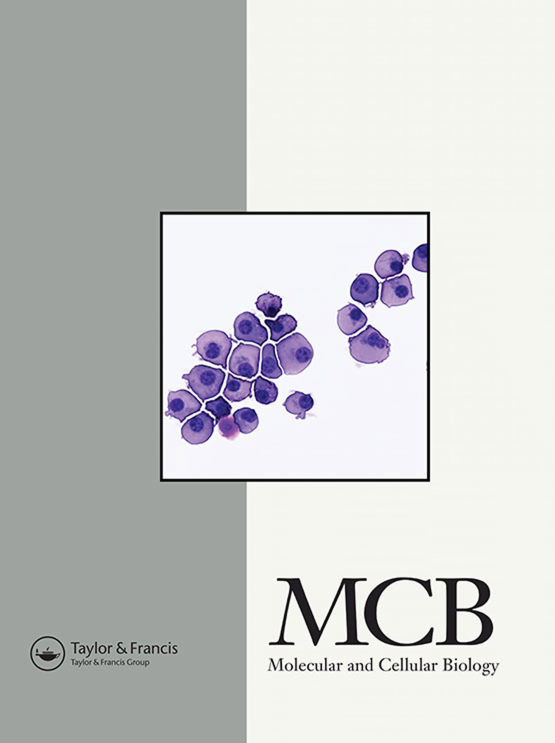Submit a Manuscript to the Journal
Molecular and Cellular Biology
For an Article Collection on
Molecular and Cellular Biology of Metals
Manuscript deadline

Article collection guest advisor(s)
Prof. Markus J. Tamás,
Department of Chemistry and Molecular Biology, University of Gothenburg, Sweden
markus.tamas@cmb.gu.se
Molecular and Cellular Biology of Metals
Several metals are indispensable for life as they fulfil essential roles in a wide range of biochemical and cellular processes. Deficiency of essential metals is detrimental for cells and associated with severe diseases or cell death while their excess lead to toxicity. Other metals have no known biological role and are poisonous at low concentrations. To maintain intracellular metal concentrations within permissive limits, all organisms ranging from unicellular microorganisms (bacteria, yeast) to multicellular organisms (plants, mammals) use homeostasis and detoxification systems that regulate metal uptake, efflux, mobilization and storage as well as metal sensing, signalling and response systems.
Metals are tremendously important for cells and organisms as they influence a myriad of fundamental processes such as protein folding and activity, redox balance, metabolism, signalling, transcriptional regulation, development, and host-pathogen interactions. The importance of metal homeostasis and detoxification is further underscored by the pathophysiology associated with metal deficiency and overload which underlie several devastating diseases such as neurodegeneration and cancer. Metals also play an important role in medicine where they are used as therapeutic and diagnostic agents. Thus, elucidating the molecular and cellular biology of metals is of great important for our understanding of basic biology, cell physiology, and disease processes and for the development of strategies for disease prevention and treatment.
We invite researchers to submit original research articles, reviews, and commentaries on the molecular and cellular biology of metals for an upcoming Article Collection in Molecular and Cellular Biology (MCB). Topics of interest include:
- Mechanisms of metal uptake, chelation, trafficking and distribution within the cell.
- Mechanisms of metal delivery into cellular compartments, organelles, and enzymes as well as mechanisms for metal storage and efflux.
- Mechanisms that control long-distance transport and distribution of metals to various cells and tissues in multicellular organism.
- Metal sensing and response mechanisms including signal transduction pathways and transcriptional regulators.
- Mechanisms by which metals influence protein folding and activity.
- Mechanisms of metal toxicity and detoxification.
- Mechanisms by which metal deficiency or overload cause disease and/or impact development.
- Mechanisms by which metals affect host-pathogen interactions.
- Mechanisms by which environmental metals affect cell physiology.
- Molecular mechanisms of action of metal-based drugs and cellular resistance mechanisms.
5 Keywords:
- Metal homeostasis
- Metal transport and distribution
- Metal sensing and signalling
- Metal toxicity and detoxification
- Pathophysiology associated with metal deficiency and overload
- Role of metals for host-pathogen interactions
Guest Advisor
Dr. Markus J. Tamás is professor in eukaryotic microbiology at the University of Gothenburg in Sweden. For more than 20 years, Markus Tamás has focused on understanding the molecular basis of metal toxicity and detoxification using the baker’s yeast Saccharomyces cerevisiae as genetic model organism. Markus Tamás’ team has studied transport proteins through which metals enter or leave cells, signal transduction and transcriptional regulatory proteins that cells use to sense and respond to metals, and proteins and cellular processes that are targeted by metals. His recent work has focused on mechanisms by which metals affect protein folding and protein homeostasis in living cells. For further details about Prof. Tamás's professional profile, kindly refer to these links: https://www.gu.se/en/about/find-staff/markustamas, and https://orcid.org/0000-0002-0762-7848.
Disclosure Statement: Prof. Tamás has no conflicts of interest to disclose.
Please review the journal scope and author submission instructions prior to submitting a manuscript.
To submit your papers to this Article Collection, please:
- Check "yes" for the question, "Are you submitting your paper for a specific special issue or article collection?"
- Select the Article Collection "Molecular and Cellular Biology of Metals" from the drop-down menu under the question, "Special Issue or Article Collection Name."
Please contact Changluan Zhou at changluan.zhou@taylorandfrancis.com with any queries and discount codes regarding this Article Collection.
Benefits of publishing open access within Taylor & Francis
Global marketing and publicity, ensuring your research reaches the people you want it to.
Article Collections bring together the latest research on hot topics from influential researchers across the globe.
Rigorous peer review for every open access article.
Rapid online publication allowing you to share your work quickly.
Submission Instructions
All manuscripts submitted to this Article Collection will undergo desk assessment and peer-review as part of our standard editorial process. Guest Advisors for this collection will not be involved in peer-reviewing manuscripts unless they are an existing member of the Editorial Board. Please review the journal Aims and Scope and author submission instructions prior to submitting a manuscript.
